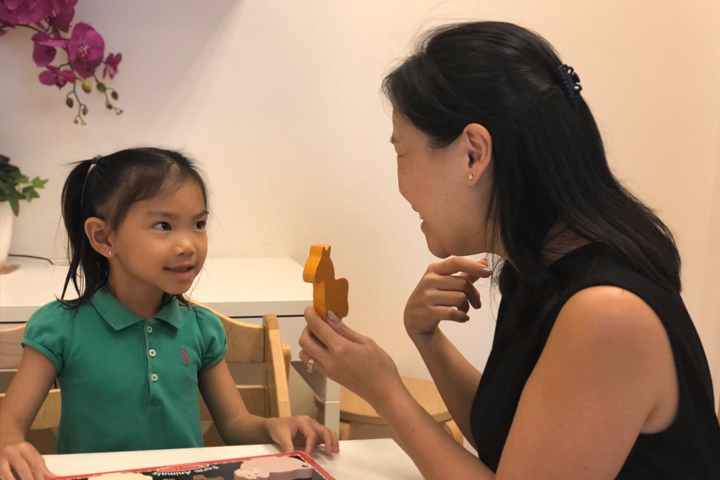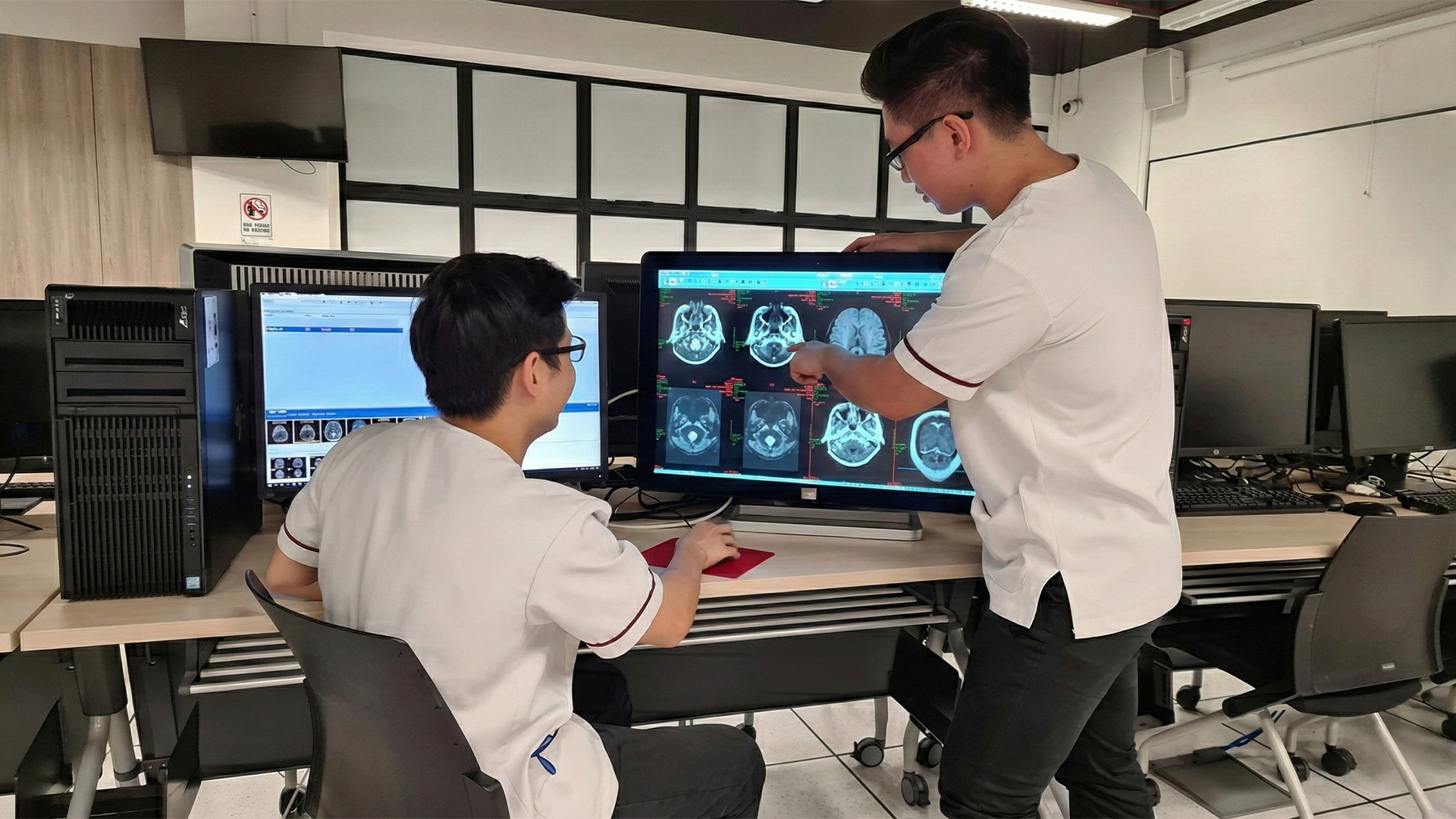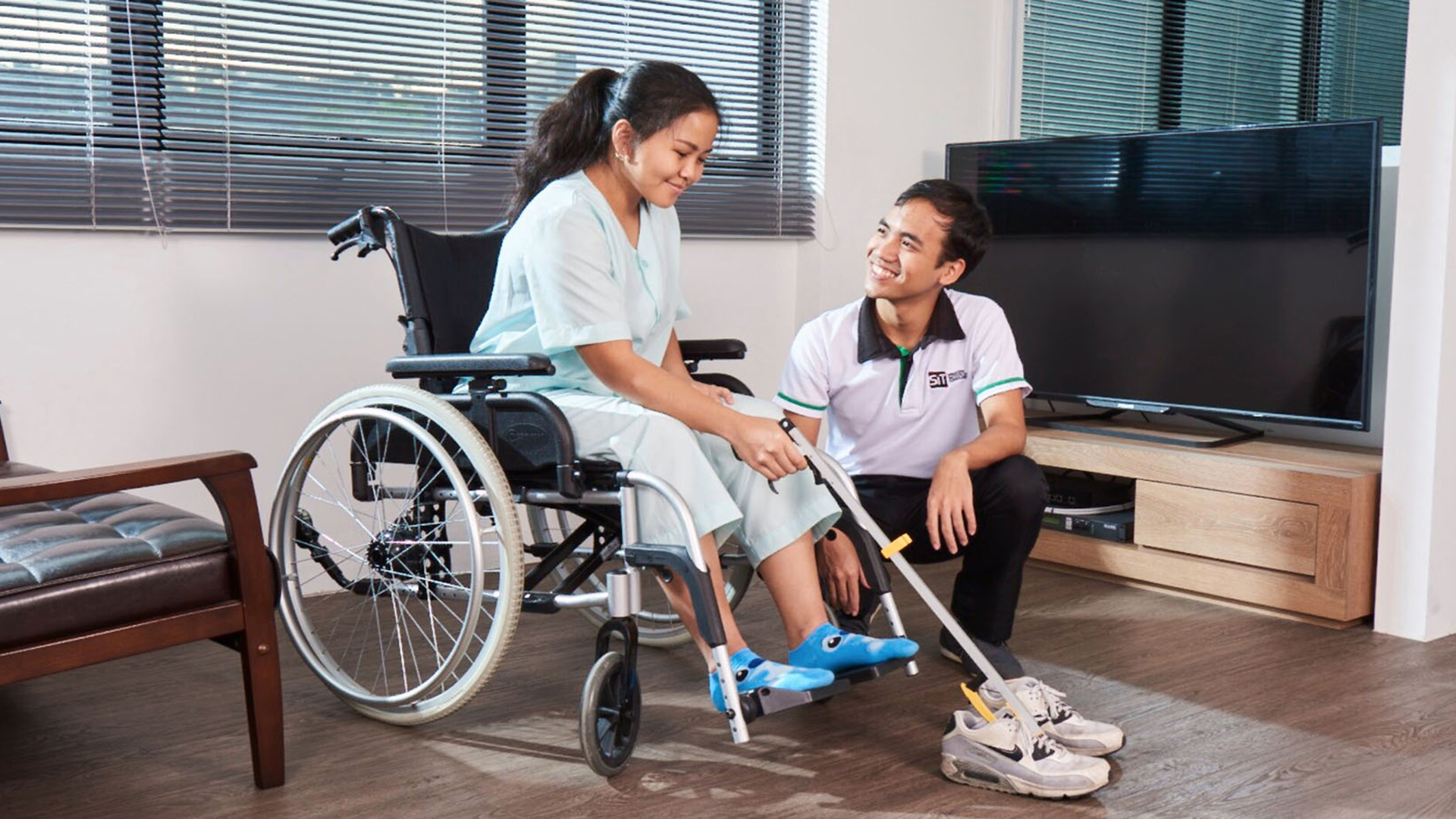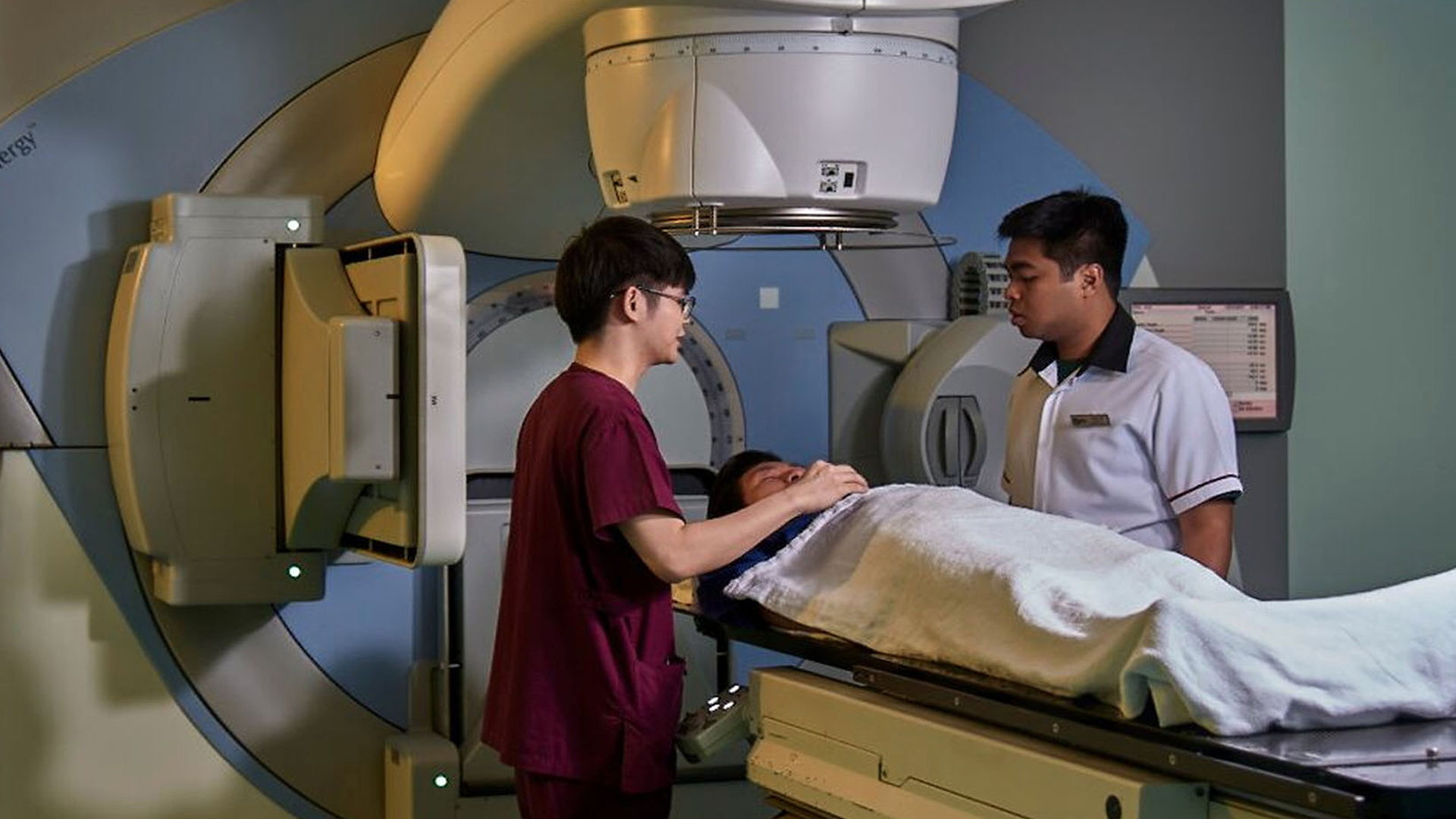![[FA] SIT One SITizen Alumni Initiative_Web banner_1244px x 688px.jpg](/openhouse2025/openhouse/sit-teaching-and-learning-academy/centre-professional-communication/directory/centre-professional-communication/sit-teaching-and-learning-academy/directory/centre-professional-communication/sit-teaching-and-learning-academy/sites/default/files/2024-12/%5BFA%5D%20%20SIT%20One%20SITizen%20Alumni%20Initiative_Web%20banner_1244px%20x%20688px.jpg)
Programme Overview
The Bachelor of Science with Honours in Speech and Language Therapy is a four-year, direct honours degree programme, developed with speech and language therapy practitioners from the public healthcare, community care, social services and private sectors.
The Speech and Language Therapy undergraduate degree programme in Singapore has been carefully developed with senior speech and language therapy practitioners from the local public healthcare, community care, social services, and private sectors.
As the first undergraduate speech and language therapy degree programme in Singapore, the programme serves to meet the national needs in preparing a new generation of highly-competent and industry-ready speech and language therapists who will promote communication, feeding and swallowing health for people across the lifespan. The programme has obtained accreditation from the Allied Health Professions Council (AHPC), thus enabling graduates to practise as professional Speech-Language Therapists in Singapore.
Do note that the healthcare staff guidelines and requirements that apply to healthcare institutions also apply to Health Sciences students. Non-compliance with these guidelines may affect your ability in meeting course requirements, graduating, obtaining registration or employment, and fulfilling bond obligations. It is crucial to adhere to these guidelines to ensure successful completion of your studies and future professional opportunities in the healthcare field.
Curriculum Highlights
- Communication Development & Disorders in Preschool and School-age Children
- Acquired Cognitive-communication and Language Disorders
- Speech Disorders in Children and Adults
- Augmentative and Alternative Communication
- Fluency and Voice Disorders across the Lifespan
- Feeding and Swallowing Disorders in Children and Adults
- Clinical Fieldwork and Interdisplinary Workshops
- 29 weeks of Clinical Practice Education

Clinical Practice Education
All students need to undergo approximately 1000 hours of clinical practice education (CPE), including clinical skills classes and placements across various clinical settings. During CPE, students learn to apply their academic and theoretical knowledge to real-world clinical practice. With progressive clinical exposure and guidance from practising clinicians, students build confidence in their clinical skills. Students need to pass all clinical placements to graduate from the programme and to be registered under the Allied Health Professions Council (AHPC).
Students may be eligible for an exit award "Bachelor of Science in Care Sciences" if they fail to meet clinical practice education module requirements for the award of an honours degree, subject to fulfilling conditions for the exit award.
Career Options
Graduates can be employed as speech and language therapists in a variety of settings, such as:
- Child Development Centres
- Special Schools
- Mainstream School Services
- Acute Hospitals
- Community Hospitals Nursing Homes and Rehabilitation Centres
- Social Service Agencies
- Private Practice
Programme Structure (AY2026/27)*
Programme Structure (AY2025/26)
| Module Title | Credits |
|---|---|
| Anatomy and Physiology 1 | 6 |
| Health Systems – Singapore’s Perspectives | 6 |
| Psychological and Sociological Perspectives for Health Sciences | 6 |
| Speech and Communication 1 | 12 |
| Communication Development | 12 |
| Anatomy and Physiology for Human Communication and Swallowing | 6 |
| Communication Disorders in Children 1 | 6 |
| Speech and Communication 2 | 6 |
| Dysphagia Management in Adults | 12 |
| Communication Disorders in Children 2 | 6 |
| Health Research Methods | 6 |
| Speech Disorders across the Lifespan | 12 |
| Fluency and Related Disorders | 12 |
| Introduction to Clinical Reasoning and Professional Issues in Speech Therapy | 6 |
| Complex Communication Disorders in Children | 6 |
| Honours Thesis Proposal | 2 |
| Acquired Cognitive-communication and Language Disorders | 12 |
| Voice Sciences and Disorders | 12 |
| Professional Issues and Contemporary Topics in Speech Therapy | 6 |
| Professionalism, Ethics and the Law | 6 |
| Augmentative and Alternative Communication | 6 |
| Paediatric Feeding and Swallowing Disorders | 6 |
| Global Health | 3 |
| Clinical Practice Education 1 | 6 |
| Clinical Practice Education 2 | 6 |
| Clinical Practice Education 3 | 6 |
| Clinical Practice Education 4 | 6 |
| Clinical Practice Education 5 | 6 |
| Honours Thesis | 16 |
* The programme structure is subject to change without prior notice. SIT regularly reviews its curriculum to ensure that it remains industry-relevant and prepares our students for the evolving needs of industry.
Eligibility and Exemption
SIT selects candidates for this programme using an aptitude-based approach that considers passion and suitability for the profession, academic achievement and co-curricular involvement. Shortlisted candidates will be invited for the Health Sciences Admission Exercise, which consists of an essay and an interview.
Listed below are the relevant admission criteria:
A Levels
Obtained a good pass in two H2/HL subjects, with a good pass in H1/SL or H2/HL (Biology, Chemistry, Physics, Mathematics, or Economics), and also offered General Paper or Knowledge & Inquiry in the same sitting while satisfying Mother Tongue requirements.
Polytechnic Diplomas
- Completed a relevant local polytechnic Diploma; and/or
- Acquired relevant full-time work experience of one to two years
Note
- Diplomas that are not listed may be considered on a case-by-case basis.
- Module exemptions will be considered on a case-by-case basis.
International Baccalaureate
Obtained a good pass in two H2/HL subjects, with a good pass in H1/SL or H2/HL (Biology, Chemistry, Physics, Mathematics, or Economics); while satisfying Mother Tongue requirements.
Other Local Diplomas
NUS High School Diploma Prerequisites
Obtained a good pass in two of the following subjects: Biology, Chemistry, Physics, Mathematics or Economics.
Other equivalent Year 12 qualifications are considered on a case-by-case basis.
Mandatory English Requirement
Applicants to the Speech and Language Therapy programme are required to fulfil ONE of the following English requirements by application closing:
| Qualification | English Subject | Minimum Grade Required* |
| GCE O Level | English as First Language | A2 |
| International English Language Testing System (IELTS Academic Module) | International English Language Testing System (IELTS) | Overall IELTS score of 7.5 and no less than 7.0 for ALL components (Listening, Reading, Writing & Speaking) in one sitting |
| TOEFL | TOEFL | 102 marks for internet-based test |
| OET | OET | At least grade B(400) in three components and B (350) in one component, in one sitting |
| Polytechnic Foundation Programme (PFP) | English Modules | A |
| GCE A Level | General Paper/Knowledge & Inquiry | B |
| International Baccalaureate (IB) | SL/HL English A: Language & Literature OR; SL/HL English A: Literature OR; SL: Literature & Performance | 5 |
| NUS High School Diploma | EL4101 or higher (EL5101, 6103) modules | B |
*Applicants who miss the English Language proficiency requirements may still apply and will be considered on a case by case basis.
Mandatory Second Language Requirement
Applicants to the Speech and Language Therapy programme are required to fulfil ONE of the following second language requirements (Mother Tongue Chinese/Malay/Tamil or equivalent) by application closing:
- GCE ‘A’ Levels: At least an E for H1 Mother Tongue/equivalent
- GCE ‘O’ Levels: At least a D7 for Higher Mother Tongue/equivalent or a C6 for Mother Tongue/equivalent
- IB: At least a grade 4 for MTLA: Literature/Language and Literature at HL/SL Level
Please refer to the Mandatory Medical Clearance for additional requirements.
Fees and Finances
Singapore Citizen
Permanent Resident
International Student
Industry Advisory Committee
The members of the Industry Advisory Committee for this programme are:
Head and Senior Consultant, Division of Rehabilitation Medicine, Department of Medicine, National University Hospital and Alexandra Hospital
Group Director, Sector Capability & Transformation Group, National Council of Social Service
Deputy Chief Allied Health Officer, Director-General of Health’s Office, Chief Allied Health Officer’s Office, Ministry of Health
Group Director, Allied Health, National University Health System
Executive Director, NHG Cares Services (Allied Health) and Deputy Group Chief Allied Health, National Healthcare Group
Group Chief Nurse, National Healthcare Group
Group Director, Group Allied Health, SingHealth
Department of Rehabilitation Medicine
Singapore General Hospital
Director, Allied Health, Woodlands Health
Chief Executive Officer, SPD





















